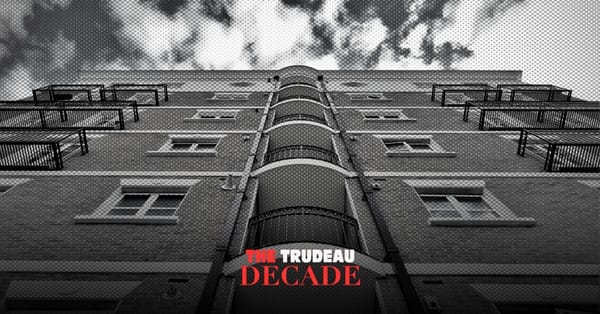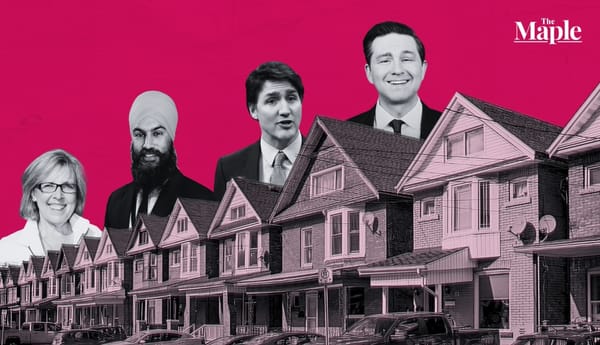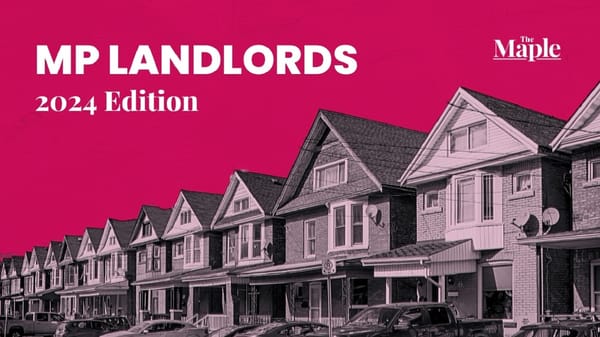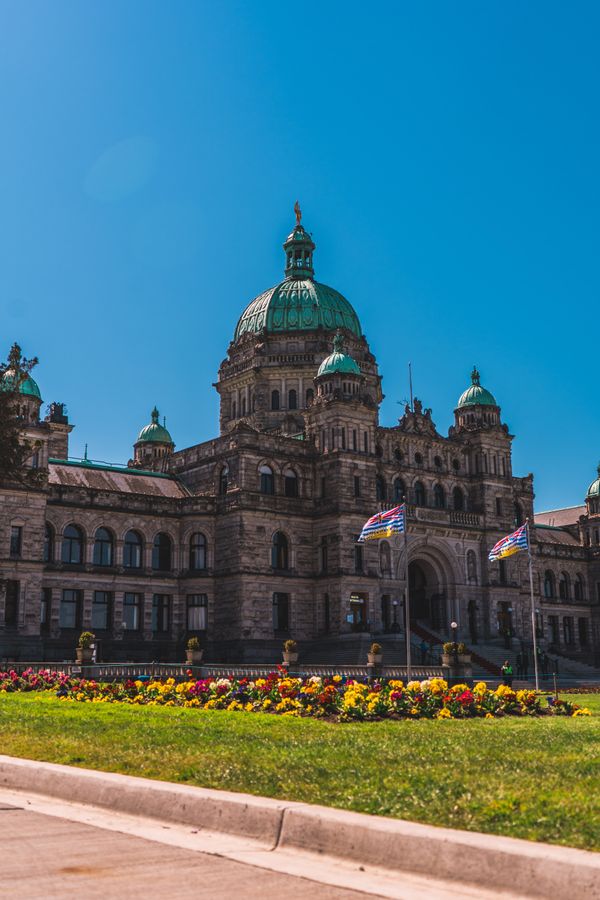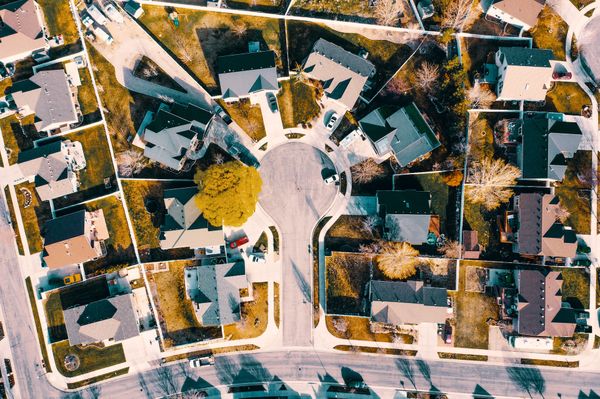Canada has found yet another way to blame foreigners for why things are so shitty for most people in this country right now.
This time, we’re talking about whether or not international students — or more specifically, the immigration policies that brought them into Canada — are to blame for the national housing crisis.
Of course, few people are foolish enough to suggest that international students are the sole, or even primary, cause of the crisis. But for the past month, this has been a focal point of mainstream political discussions and some media reports about the housing crisis, prompting inane comments from both major federal parties and serving as a means to distract from conversations about the actual causes.
During an interview with CBC on August 22, Minister of Housing, Infrastructure and Communities Sean Fraser said that his government was considering placing a cap on the number of foreign students granted study visas for entry into Canada. The reason, he explained, is that “there’s been such rapid growth, given that the program is typically uncapped,” meaning that “certain communities are having difficulties managing with the population growth that it’s attracted.”
The problem, as outlined by a Carleton University research fellow quoted in a National Post article last month, is that, per the Post’s paraphrase: “Record numbers of international students coming to Canada is [sic] making the already inflated cost of housing worse.”
Universities, which can charge international students higher tuition fees than their domestic counterparts, welcome large numbers of these students as a means to generate revenue. This influx of students from overseas, according to the Post’s source, fuels more demand at the bottom of the rental markets in the universities’ host communities, as international students must compete with existing pools of low-income renters for an inadequate supply of rental units.
During his conversation with CBC, Fraser stressed that his government still supported the international student program (in large part because of its significant contribution to the Canadian economy) and that the possible cap is just one of several options being ‘canvassed’ to address the issue.
The day after Fraser’s comments, Prime Minister Justin Trudeau stressed that it would be unfair to blame international students alone for the housing crisis, as it is caused by “multiple factors.” In his remarks, Trudeau then made the ludicrous suggestion that blaming developers and the government for the crisis is equally unfair as blaming international students.
He said: “Over the past years, we’ve seen a lot of different people and a lot of different groups blamed for the housing crisis. At one point it was foreign homebuyers. At another point it was developers being super aggressive. Another point, it was under-investments by various orders of government. Now it’s people saying, ‘Oh, it’s international students.’”
Trudeau is correct that blaming international students for causing the housing crisis is absurd. The roots of Canada’s housing crisis can be traced back to at least the neoliberalization of the economy in the 1980s, when Conservative prime minister Brian Mulroney drastically cut back spending on social housing. In 1993, the Liberal government of Jean Chrétien finally cancelled all spending on new social housing projects.
Since then, experts like Ricardo Tranjan note, the financialization of the housing market, whereby homes came to be treated primarily as vessels in which to park wealth rather than as places to live in — coupled with the rollback of publicly funded housing programs — fuelled soaring house prices and rents. In his recent book, The Tenant Class, Tranjan actually takes issue with calling it a housing “crisis,” since this phrase elides the fact there have been big winners from this trend who therefore have a direct interest in maintaining the status quo.
This includes nearly 40 per cent of Canadian MPs. As research by my colleague Davide Mastracci shows, 128 out of 333 members of Parliament who filed disclosures before his article was published are landlords or are invested in real estate in some way, meaning they directly benefit from a situation that forces renters to hand over massive portions of their income and that makes homeownership for many nothing more than a pipe dream.
If the influx of international students is making an already dire situation for renters in some communities even more difficult, it is a symptom of these much deeper problems and the failure by successive governments to address them — not the cause. Indeed, as noted by Migrant Workers Alliance for Change, linking immigration to housing is “racist thinking.”
But Trudeau’s suggestion that blaming international students is the same thing as blaming governments and developers is an equally ridiculous and cynical distortion of reality — governments and developers are, in fact, very much responsible for the housing crisis. Developers (including some in whom Canadian MPs are invested) have profited handsomely from the status quo, and the federal government has offered ‘solutions’ that actually incentivize and/or subsidize these private developers, while failing to check ever-increasing housing costs.
As Tranjan explained in an interview with The Tyee in May: “Governments should be intervening to remove profit from housing, instead of subsidizing private developers in the hopes that they will provide some discounted housing as part of their developments.”
By failing to undertake this necessary work, Tranjan said, the Trudeau government’s National Housing Strategy has fallen well short. The federal government is “not back in the [social housing] game yet,” he noted.
These failures explain why renters in cities like Vancouver are paying an average of nearly $2,800 per month for a one-bedroom apartment, up 14.7 per cent from the year prior. According to the Canadian Centre for Policy Alternatives, the minimum wage in every province is well below the wage needed to afford average rent for a one-bedroom apartment.
Homeownership, meanwhile, remains an unimaginable dream for the vast majority of people, particularly in major cities. The benchmark price for a detached home in Vancouver, for example, was more than $2 million in July, an increase of 118 per cent from July 2013, according to data from the Real Estate Board of Greater Vancouver. Of course, homeowners who bought their places years ago can reap the benefits of these soaring values.
However much Trudeau might try to distort the blame, Canadians broadly agree about the federal government’s responsibility for the crisis and the need for non-market solutions. According to a Leger poll commissioned by The Canadian Press and released in August, 40 per cent said the federal government bore the greatest amount of responsibility for the crisis, while 79 per cent said governments should supply more “affordable” housing. Seventy-seven per cent said governments should tighten rent controls, compared with a slightly lower 68 per cent who supported means-tested renter subsidies (money which would ultimately end up in the pockets of landlords and developers).
Meanwhile, what do Pierre Poilievre’s Conservatives have to say about all of this? As it happens, a lot of bullshit.
Of course, they have made political hay out of the Liberal government’s clear failures on housing. In a statement to the Post in its story about the impact of international students on the housing market, Tom Kmiec, the Conservative party’s immigration and citizenship critic, simply focused on the Liberal government’s housing failures and didn’t say that a Conservative government would not consider placing a cap on international students.
Responding to Fraser’s announcement that his ministry was considering such a measure, Poilievre wrote on Twitter: “So now the outgoing immigration minister blames international students for housing costs—which doubled under Trudeau.” Speaking at a press conference the next day, Poilievre again focused on the fact that Fraser was talking about reversing some of the same trends the Liberal cabinet member oversaw as minister of immigration, but again did not rule out implementing a similar kind of policy himself.
Poilievre then pivoted to talking about balancing the federal budget in order to reduce mortgage interest rates and removing “massive bureaucracies” on private housing development. His comments focused entirely on supporting homeowners and developers, and said nothing at all about renters.
Poilievre is essentially using the housing crisis to rebrand bog standard conservative obsessions — decimating social programs and privatizing the state — that will do absolutely nothing to change the underlying causes of the housing crisis, much less solve the problem of international students struggling to find somewhere to rent during their studies.
In other words, we’re left with two ruling parties — both of which are led by real estate investors — that are completely bereft of ideas or even any interest in grappling with the need for non-market solutions to the housing crisis. In the meantime, silly debates about whether or not to impose a cap on international students helps both parties to avoid having these conversations.



